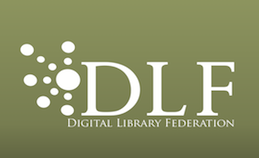Data Management Planning Tool
Constellation D: Tuesday, November 1, 2:00 – 5:00PM
A growing number of funding agencies require data management plans (DMP) as part of new proposals. In addition, institutions are using DMPs to aid in strategic planning for infrastructure and resources. To help researchers with this requirement, several organizations (the California Digital Library, University of Illinois, University of Virginia, Smithsonian Institution, the DataONE consortium and the (UK) Digital Curation Centre) came together to develop the DMPTool. The goal of the DMPTool is to provide researchers with guidance, links to resources and help with writing data management plans.
Researchers using the DMPTool first select the funding agency for which they are writing a grant proposal. They will find specific requirements for DMPs from their funding agency, and detailed help with each of the areas that the plan should cover. They can create a plan, preview it, export it in various formats, and make it freely accessible for others to read.
Researchers from partner institutions have additional functionality available to them. Once they log in and begin to develop a DMP, they will find links to resources at their institutions, such as to preservation repositories, consultation services or other information and support provided to researchers by their institutions. In addition, partner institutions can provide help to specific questions within the plans, and even suggest answers to these questions. Institutions can also provide news items about events, workshops, and other information. This will provide an invaluable way for institutions to highlight their resources and services to researchers. Other developments, such as integration with grants management systems and closer cooperation with the funding agencies, have been discussed.
This workshop has three goals: 1) to provide an in-depth look at the DMPTool, providing information to staff at libraries, data centers and IT organizations who can in turn inform and train the faculty members, researchers and administrators at their institutions; 2) to describe the information institution can provide to become contributing partners; and 3) future development plans and ideas for priorities, directions and funding opportunities.
Session Resources
Participants List
1. Yolanda Cooper
2. Holly Mercer
3. Helen Tibbo
4. Gregg Silvis
5. Erin Sackett-Hermann
6. Spencer Keralis
7. Shannon Stark
8. Jordon Andrade
9. Nancy Elkington
10. Jim Kuhn
11. Bob Duncan
12. Anne Elguindi
13. Eliz Kirk
14. Martin Halbert
15. Andrea Medina-Smith
16. Tali Beesley
17. Emily Gustainis
18. Betsy Gunia
19. Tip Ros
20. Daniel Lanz
21. Tip Ros
22. Mark Matienzo
23. Joshua Gomez o
24. Zhiwu Xie
25. Nathan Hall
26. Richard (Rick) Johnson
27. Nadia Seiler
28. Mary Molinaro
29. Elisabeth Long
30. Bill Corey
31. Harriett Green
32. Mary Manning
33. Johan Oberg
34. Todd Grappone
35. Linda Thomas
36. John Mark Ockerbloom
37. Michael Witt
38. Cheryl Walters
39. Jackie Dooley
40. Sarah Potvin
Wait List
41. Kent Norsworthy
42. Dan Chudnov
Session Leaders
Perry Willett (California Digital Library)
Sherry Lake (University of Virginia)
Günter Waibel (Smithsonian Institution)
